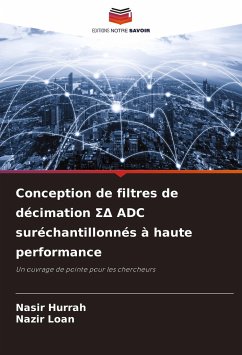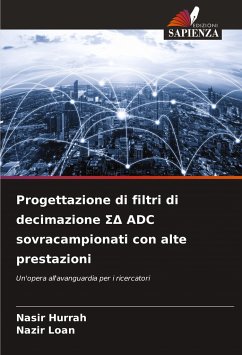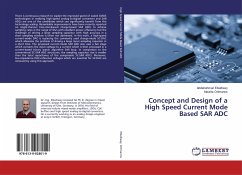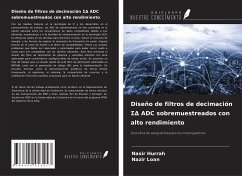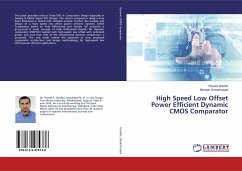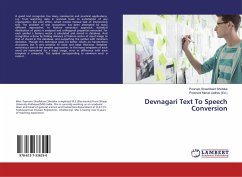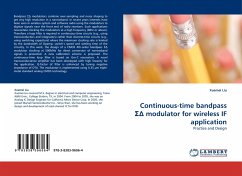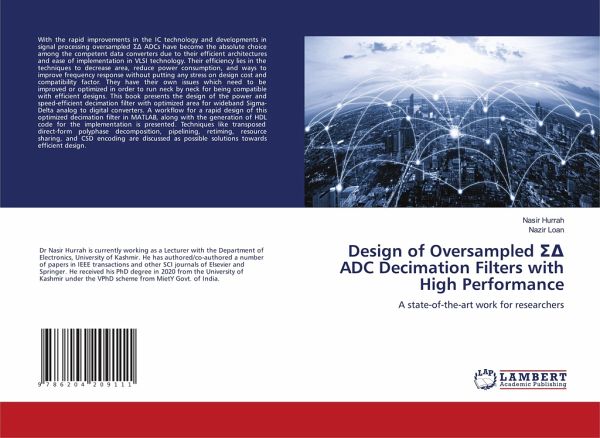
Design of Oversampled ¿¿ ADC Decimation Filters with High Performance
A state-of-the-art work for researchers
Versandkostenfrei!
Versandfertig in 6-10 Tagen
27,99 €
inkl. MwSt.

PAYBACK Punkte
14 °P sammeln!
With the rapid improvements in the IC technology and developments in signal processing oversampled SigmaDelta ADCs have become the absolute choice among the competent data converters due to their efficient architectures and ease of implementation in VLSI technology. Their efficiency lies in the techniques to decrease area, reduce power consumption, and ways to improve frequency response without putting any stress on design cost and compatibility factor. They have their own issues which need to be improved or optimized in order to run neck by neck for being compatible with efficient designs. Th...
With the rapid improvements in the IC technology and developments in signal processing oversampled SigmaDelta ADCs have become the absolute choice among the competent data converters due to their efficient architectures and ease of implementation in VLSI technology. Their efficiency lies in the techniques to decrease area, reduce power consumption, and ways to improve frequency response without putting any stress on design cost and compatibility factor. They have their own issues which need to be improved or optimized in order to run neck by neck for being compatible with efficient designs. This book presents the design of the power and speed-efficient decimation filter with optimized area for wideband Sigma-Delta analog to digital converters. A workflow for a rapid design of this optimized decimation filter in MATLAB, along with the generation of HDL code for the implementation is presented. Techniques like transposed direct-form polyphase decomposition, pipelining, retiming, resource sharing, and CSD encoding are discussed as possible solutions towards efficient design.



